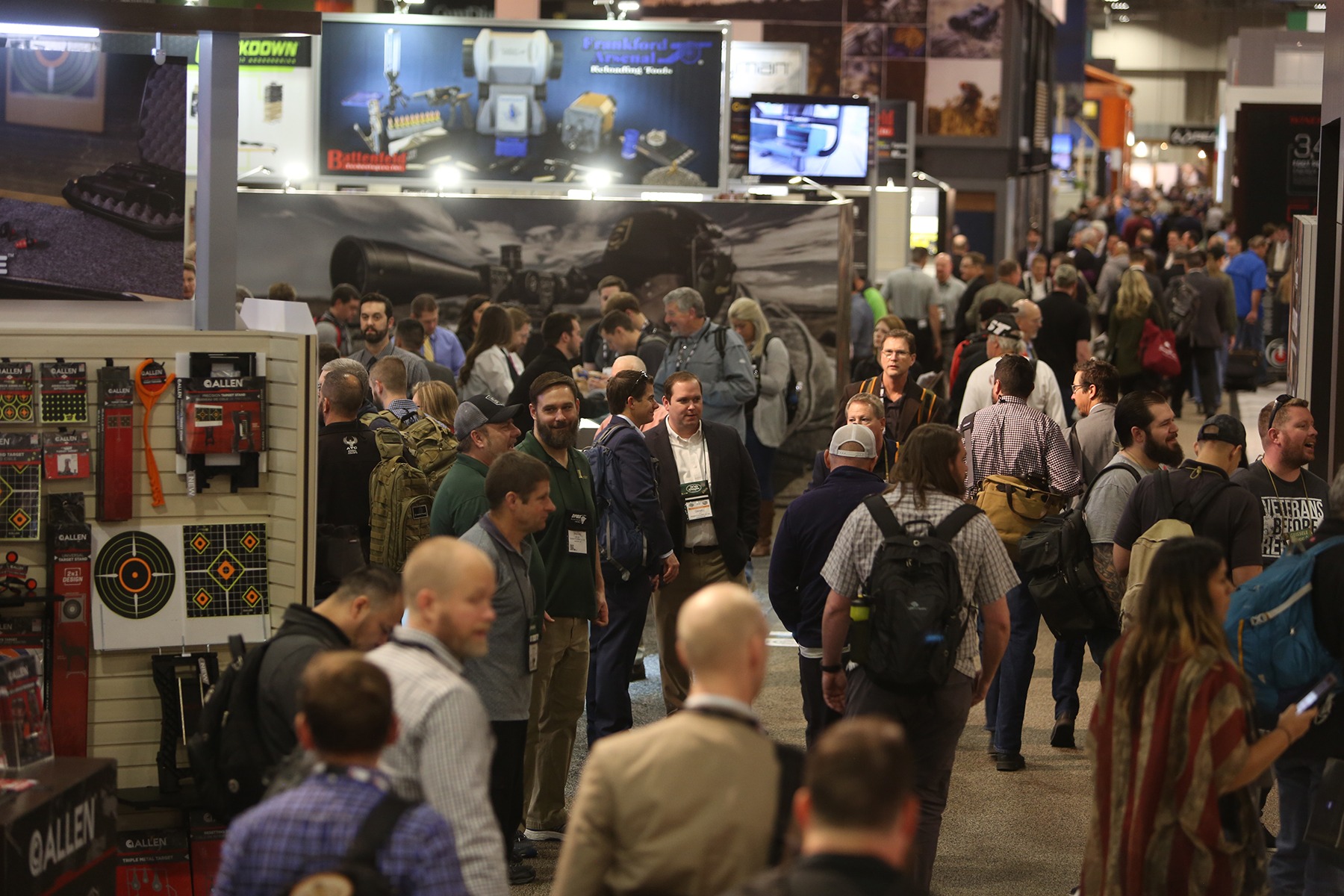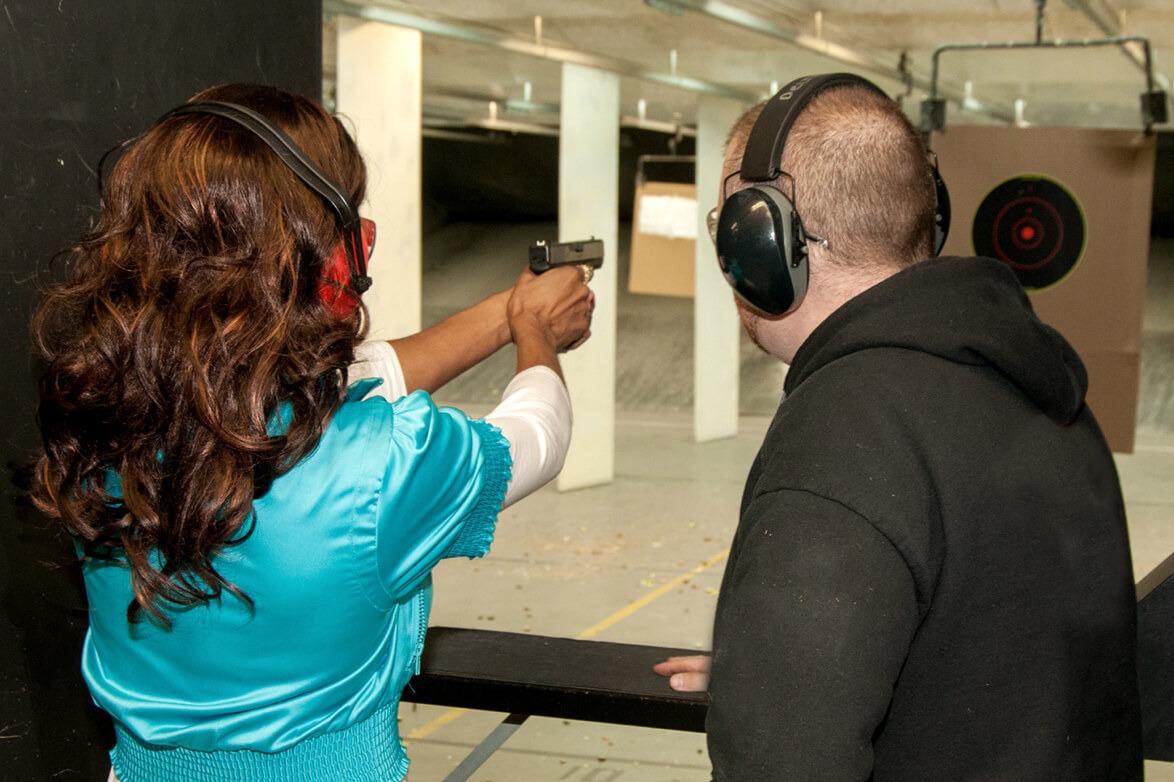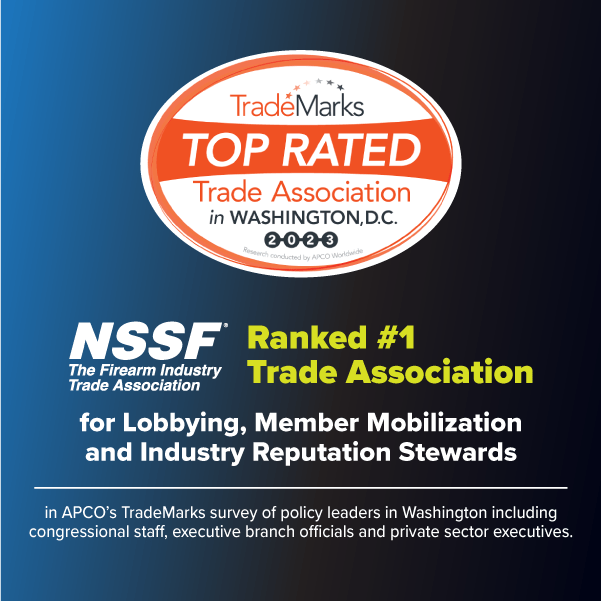 Back to News
Back to News
August 11, 2015
Rental Guns and Your FFL — Growing Your Business While Staying Compliant
Innovative retailers are always on the lookout for ways to increase their profits by expanding their businesses. One way to do this is to add a shooting range to a retail storefront. Adding an indoor or outdoor shooting range to your facility, when done right, can certainly improve your customer traffic. However, what some retailers leave out of their range investment equation is the value of a rental gun program.
Rental Guns + Compliant Firing Range = More Prospective Customers
Did you know that as a properly licensed FFL you may rent firearms to customers for use on your range (your licensed premises)? This type of rental is not considered a “transfer” or disposition of a firearm under federal law and ATF regulations or policies. An ATF Form 4473 and a NICS background check are not required in order for you to rent a firearm to someone, provided the gun stays on your licensed premises. Likewise, you do not need to enter a rental firearm as a disposition in your record books each time one is rented by a customer for use on your range.
While not required by ATF regulation, it is suggested that you maintain completely separate A&D records for just your firearm rentals. These rentals should remain recorded as open acquisitions (no dispositions shown) in your A&D records. The major advantage of maintaining this type of separate recordkeeping system, is that you can easily locate these rentals during the conduct of any physical inventory. If you chose not to maintain separate A&D records, you should identify these firearms as “rental firearms” in your regular A&D recordkeeping system with no disposition reflected.
Renting guns to your customers for use on your premises does require that all rentals remain on your premises at all times and under your control. This includes the rental of NFA firearms.
Who Can Rent Your Guns?

Basically, anyone who is eligible to purchase a firearm can also rent a firearm. In addition, under federal law, there is no legal minimum age requirement for individuals who rent and use firearms on your premises (you should check your local state law to see if there are any restrictions in your area). However, many retailers do routinely establish age policies. These policies are based on the store/range owner’s confidence that an individual can safely and responsibly handle a specific type of firearm at a given age. It is strongly recommended that you create a policy for rental gun usage that best suits your business and range facilities. That policy should be put in writing and made available to both employees and customers. Likewise, you should ensure your employees are trained in and abide by that policy.
While no NICS background checks are required before renting a gun to an individual, retailers are still prohibited from renting a firearm to any person whom they believe is prohibited from receiving or possessing a firearm by law. The same prohibitions listed under 18 USC 922(d) and 922(g) and on the front of ATF Form 4473 (see items 11b-l2) apply to persons renting firearms for use on your premises.
While not required by federal regulation, many retailers routinely collect an ID such as a driver’s license when renting a gun. This helps ensure the gun is returned to the retailer when the customer is finished with it. This also aids in determining the age and residence of the rental customer. In addition, it is helpful to maintain copies of documents or record customer data that assists in establishing the status of permanent aliens or those aliens who enter the U.S. without a visa under the visa waiver program. Basically, any documents and data that you collect for firearm sales can also assist you in the rental of firearms.
You should note that an alien admitted into the U.S. under a non-immigrant visa is generally prohibited from possessing a firearm. There are exceptions to this legal prohibition. One such exception is when a non-immigrant alien possesses a hunting license issued by a Federal, state or local government entity. In this instance—provided no other prohibitions exist–they can legally rent and use a firearm on your licensed premises/range. While no ATF Form 4473 is required, you do need to view, and renters are required to present, any exception document(s) that apply. It is a good idea to maintain copies of these exception documents or record the applicable data as you would with a transfer. This will support your decision to rent to a specific individual should anyone from ATF question the rental during an inspection.
You may be wondering how you and your staff can identify the difference between prohibited and non-prohibited persons when it comes to firearm rentals; it is certainly easier to ascertain this difference when selling a gun. As you know, a sale requires both a completed ATF Form 4473 and an approved NICS background check. However, since a firearm rental is not considered a transfer, a retailer cannot access NICS to conduct a NICS check. As a result, some retailers develop their own rental form questionnaires. These questionnaires use language from questions in items 11b through 12 from the Form 4473. Federally licensed retailers can also ask the same information required by items 13 though 15 and item 20c of the Form 4473 on their personally created rental form. It is a good idea to have the person renting the firearm sign the form attesting to its accuracy.
It should be noted that the actual ATF F 4473 should not be used for firearm rentals. Remember, you must be reasonably sure that the person renting a firearm from you, for use on your premises, is not prohibited by law from receiving or possessing the firearm. Federal law and regulation do not spell out the specifics of how to make this determination, but the responsibility of not knowingly renting firearms to prohibited persons sits squarely on your shoulders as a licensed firearms retailer.
When a Rental Becomes a Transfer
 What happens if a prospective customer wants to rent a firearm from your business for use off your licensed premises? This question does come up, especially with customers who wish to rent a particular gun for extensive testing before buying or for a hunting trip. Maybe they have their own range or targets they prefer to utilize instead of yours. Allowing your rental customers to use your firearms at partnering area ranges can also be a consideration. There may be times when you cannot acquire property or building space to create your own firing range, or perhaps you may not be in a position to make such a capital investment.
What happens if a prospective customer wants to rent a firearm from your business for use off your licensed premises? This question does come up, especially with customers who wish to rent a particular gun for extensive testing before buying or for a hunting trip. Maybe they have their own range or targets they prefer to utilize instead of yours. Allowing your rental customers to use your firearms at partnering area ranges can also be a consideration. There may be times when you cannot acquire property or building space to create your own firing range, or perhaps you may not be in a position to make such a capital investment.
No matter the reason, a rental firearm that will be used off your licensed premises becomes a “transfer” as defined by ATF once the firearm leaves your premises. This means that all age restrictions and required identification documents associated with the sale of a firearm are in effect. In these instances, the rental customer must fill out the ATF Form 4473 and you must conduct a NICS background check before you can allow the rental customer to leave with the firearm. The firearm is then entered as a “disposition” in your A&D records. Note that the off-premises rental of NFA firearms requires all transfer taxes and forms be processed through ATF prior to the rental.
When an off-premises rental firearm is returned to your place of business (your licensed premises), you must re-enter that gun as an acquisition in your A&D records. In the case of an NFA firearm rental, you must also pay the appropriate transfer tax and submit the transfer forms to ATF for processing and approval prior to receiving back and reentering these NFA firearms into your books.
***
Expanding your business to include firearm rentals is one way of increasing sales and profits. This applies to both a range facility built by you and other area ranges that see the mutual benefit of partnering with you. It is important you know the regulations regarding how, when, where and to whom you can rent firearms. Take the time to evaluate the laws and your potential customer draw. Also ensure that your staff is trained on your firearms rental policies and that you have the time to properly record rental transactions as they occur. Only after dotting your “Is” and crossing your “Ts” can you guarantee compliance with Federal requirements, while also meeting customer needs and increasing your business.
You may also be interested in: Employee Background Checks — Yes, You Should
About the Author
Audrey Stucko is a member of NSSF’s Compliance Consultant team. She began her career with the Bureau of Alcohol, Tobacco and Firearms (ATF) in early 1977, working in a variety of positions in New York, Philadelphia, Baltimore and Washington, D.C. Ms. Stucko spent a number of years managing the National Inspector Training Program before working with Congress as a member of ATF’s Legislative Affairs Staff. In 2005, she was selected as Deputy Assistant Director for the Office of Enforcement and Programs Services, and then later as Acting Assistant Director, where she oversaw the National Tracing Center and the development of regulations and policies governing the firearms industries. In 2011, Ms. Stucko became the Acting Assistant Director for the Office of Human Resources and Professional Development. In this role, she oversaw the accreditation process of several major training programs, one of which was the Industry Operations Investigators (IOIs) training program. She retired from the Federal Government in 2012, after 36 years with ATF.









